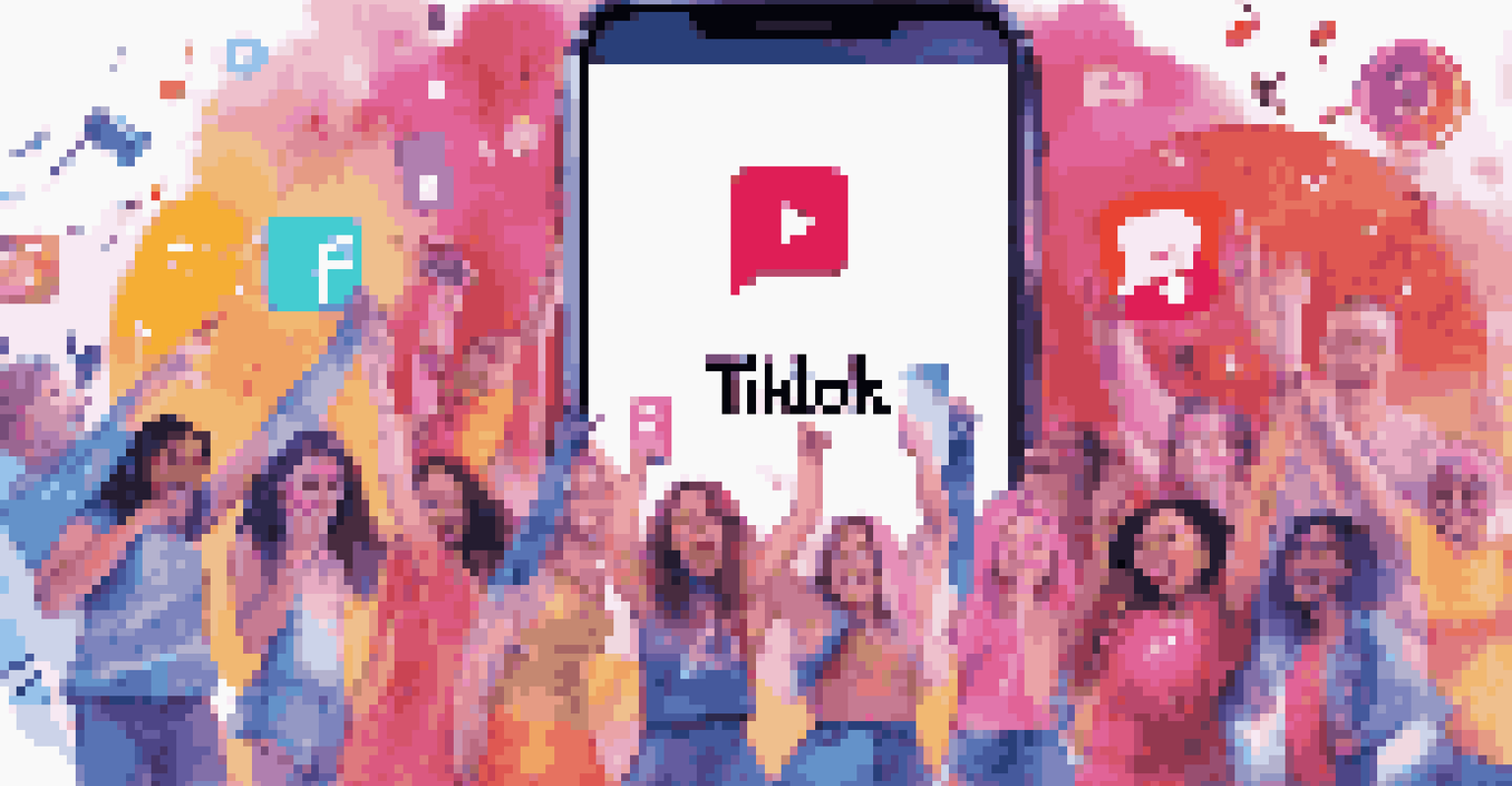The Impact of Digital Marketing on Independent Music Artists

Understanding Digital Marketing in the Music Industry
Digital marketing plays a crucial role in today's music landscape, especially for independent artists. Unlike traditional marketing methods, which can be costly and less targeted, digital strategies allow musicians to reach their audience directly. This shift has empowered artists to take control of their branding and promotion without relying on major labels.
The best marketing doesn't feel like marketing.
With platforms like social media, streaming services, and email newsletters, independent artists can connect with fans on a personal level. For example, an artist can share their journey, behind-the-scenes content, and new releases through platforms like Instagram or TikTok. This not only builds a loyal fanbase but also fosters community engagement, which is vital for success.
Moreover, digital marketing tools provide valuable insights into audience behavior and preferences. By analyzing metrics such as engagement rates and streaming statistics, artists can refine their strategies to better resonate with their fans. This data-driven approach helps them make informed decisions about their music and marketing efforts.
Social Media's Role in Music Promotion
Social media platforms have become indispensable for independent artists aiming to promote their music. Sites like Facebook, Instagram, and Twitter allow musicians to share their work instantly, reaching thousands of potential listeners. Posts featuring new songs, exciting visuals, or engaging stories can go viral, leading to increased visibility.

For instance, consider an indie artist who releases a catchy single and creates a TikTok challenge around it. Fans can participate by creating their own videos, which not only promotes the song but also builds a sense of community. This organic form of marketing can lead to a snowball effect, where more people discover the artist through their friends and social networks.
Digital Marketing Empowers Artists
Independent artists can directly connect with their audience through digital marketing, bypassing traditional costly methods.
Additionally, social media enables real-time interaction between artists and their fans. Artists can respond to comments, host live Q&A sessions, or even perform virtually. This engagement deepens the connection with fans, making them feel valued and more likely to support the artist's future endeavors.
The Power of Streaming Platforms for Exposure
Streaming platforms like Spotify, Apple Music, and SoundCloud have revolutionized how independent artists distribute their music. These platforms not only provide access to a vast audience but also offer promotional tools to enhance discoverability. Independent artists can submit their songs to curated playlists, which can significantly boost their streams and visibility.
Content is fire; social media is gasoline.
For example, getting featured on a popular playlist can introduce an artist to listeners who may not have otherwise found them. This exposure can lead to increased followers, higher streaming numbers, and even opportunities for live performances. It's a game-changer for those who may not have the budget for traditional advertising.
Moreover, streaming platforms often provide analytics that help artists understand their audience better. Insights such as listener demographics and geographical data can guide future marketing campaigns and music releases. By leveraging this information, musicians can tailor their content to better meet the preferences of their growing fanbase.
Email Marketing: Building a Loyal Fanbase
While social media gets a lot of attention, email marketing remains a powerful tool for independent artists. Building an email list allows musicians to communicate directly with their fans, sharing news, upcoming shows, and exclusive content. Unlike social media, where algorithms can limit reach, emails land directly in fans' inboxes, ensuring they don't miss important updates.
For instance, an artist might send out a monthly newsletter featuring a behind-the-scenes look at their songwriting process, upcoming tour dates, and links to new music. This consistent communication keeps fans engaged and eager to support the artist's journey. Plus, offering incentives like exclusive downloads or early access to tickets can encourage fans to sign up.
Social Media Drives Music Promotion
Platforms like TikTok and Instagram enable artists to share their music and engage with fans, fostering community and increasing visibility.
Furthermore, email marketing allows for segmentation, meaning artists can tailor messages to different groups within their fanbase. For example, they might send concert announcements to local fans while providing exclusive content to their most dedicated supporters. This personalization enhances the connection between the artist and their audience.
Content Creation: More than Just Music
In the digital age, content creation extends beyond just releasing music. Independent artists are increasingly engaging in storytelling through videos, blogs, and social media posts. This multifaceted approach helps them build their brand and connect with fans on a deeper level.
For example, an artist might create a vlog series documenting their creative process, sharing their challenges and triumphs. This transparency makes them more relatable to fans, who may see parts of themselves in the artist's journey. The more personal the content, the stronger the bond between the artist and their audience.
Moreover, diversifying content can attract different audience segments. An artist who shares a mix of music, personal stories, and creative insights may appeal to a broader range of listeners. This strategy not only keeps the content fresh and engaging but also reinforces the artist's identity in a crowded market.
Collaborations and Networking in the Digital Space
Digital marketing fosters collaboration among independent artists, allowing them to reach new audiences together. By partnering with other musicians, artists can leverage each other's fanbases, enhancing their visibility. Whether through joint singles, social media takeovers, or collaborative live streams, these partnerships can open doors to exciting opportunities.
For example, two indie artists might collaborate on a song and promote it through their respective channels. This not only doubles the promotional reach but also creates a unique blend of styles that can attract attention. Fans often appreciate such collaborations, as they introduce them to new sounds and artists they might not have discovered otherwise.
Analytics Shape Marketing Strategies
By analyzing various metrics, independent artists can refine their marketing efforts to better resonate with their audience.
Additionally, networking with other artists and industry professionals can lead to valuable connections. Online platforms and communities make it easier for musicians to find like-minded individuals and share resources. Building relationships in the digital space can lead to opportunities for gigs, collaborations, and even mentorship that might otherwise be out of reach.
Measuring Success: Analytics and Feedback
One of the key advantages of digital marketing is the ability to measure success effectively. Independent artists can track various metrics such as streaming numbers, social media engagement, and email open rates. These analytics provide valuable insights into what strategies are working and where adjustments are needed.
For instance, if an artist notices a spike in streams after a social media campaign, they can analyze the content that resonated with their audience. This data-driven approach allows them to refine their marketing strategies continually. Learning from successes and failures cultivates a more effective promotional strategy over time.

Moreover, feedback from fans can also guide an artist's direction. Engaging with listeners through polls, comments, and direct messages can provide insight into what fans want to hear next. By staying attuned to their audience's preferences, independent artists can create music and content that truly resonates.